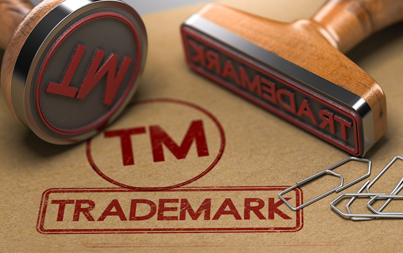
Building a strong and recognizable brand is essential for success in today’s globalized and intensely competitive business climate
 Building a strong and recognizable brand is essential for success in today’s globalized and intensely competitive business climate. A brand symbolizes the trust, reputation, and value connected to a good or service; it goes beyond merely a company’s name or emblem. Businesses must consult the best law firm to comprehend the importance of trademarks and brand protection to maintain these assets. This article highlights the significance of trademarks in the commercial world and the nuances of trademark registration, infringement, and enforcement while focusing on the universal nature of trademark protection.
Building a strong and recognizable brand is essential for success in today’s globalized and intensely competitive business climate. A brand symbolizes the trust, reputation, and value connected to a good or service; it goes beyond merely a company’s name or emblem. Businesses must consult the best law firm to comprehend the importance of trademarks and brand protection to maintain these assets. This article highlights the significance of trademarks in the commercial world and the nuances of trademark registration, infringement, and enforcement while focusing on the universal nature of trademark protection.
Need for Protection of Trademarks
A trademark is a unique symbol, phrase, word, or design used to identify and differentiate a company’s products or services from others. It serves as a brand’s unique signature, encapsulating its reputation and goodwill in the marketplace. A well-established trademark can significantly enhance a business’s visibility, customer loyalty, and overall value.
Trademarks are a visual representation of a brand. They help customers identify and connect with products or services, often transcending language barriers. The brand protection policy is an important legal measure the government takes to help minimize the repercussions of brand abuse. Think of iconic logos like the golden arches of McDonald’s or the swoosh of Nike – These symbols instantly evoke strong brand recognition.
A consistent and recognizable trademark builds trust among consumers. When customers see a familiar logo or brand name, they are more likely to make purchase decisions based on the reputation and quality associated with that brand. The term of trademark registration can vary but usually continues for ten years. It can be renewed indefinitely on payment of an additional fee. Trademark rights are private rights and protection is enforced through court orders. This public policy in India provides legal protection against others attempting to use a similar mark for their products or services. This protection extends to registered and unregistered trademarks, although the scope of protection varies.
Trademark Registration
The trademark registration process in India involves several key steps:
- Trademark Search: Before finalizing any mark, conduct thorough research on whether your proposed trademark is unique and not already registered by anyone else.
- Application Filing: Submit an online or offline trademark application to the Indian Trademark Office along with the required documents and fees. For filing online, one needs to file it on the government websites of the Ministry of Commerce and Industry, Department of Industrial Policy and Promotion, Controller General of Patent Design and Trademarks.
Registration can be done by the proprietor/Applicant, Agent, or Attorney.
- Examination: The Trademark Office will examine your application to ensure it meets legal requirements, including distinctiveness and compliance with trademark rules.
- Publication: If the trademark is accepted, it will be published in the Trademark Journal to allow for any third-party objections within 4 months.
- Opposition (if applicable): If there are objections, parties can oppose the registration within the stipulated time.
- Registration: If no opposition is filed or if opposition fails, the trademark will be registered, and a registration certificate will be issued.
- Renewal: Trademarks are valid for 10 years and can be renewed indefinitely every 10 years by paying the renewal fees.
The entire process of trademarks and brand protection in the business sector typically takes 1-2 years, but it can vary depending on the complexity of the application and any potential objections. Once registered, your trademark grants you exclusive rights to use it for the specified goods or services, protecting your brand in India.
Trademark Infringement and Enforcement
Trademark infringement occurs when another party uses a mark that is confusingly similar to a registered trademark for similar goods or services, potentially causing consumer confusion or diluting the brand’s distinctiveness. Trademark owners must protect their marks and take legal action against infringing parties. Here are some key aspects of trademark infringement and enforcement:
- Cease-and-Desist Letters: In many cases, trademark owners start by sending cease-and-desist letters to alleged infringers, requesting them to stop using the infringing mark. This informal approach may resolve the issue without litigation.
- Litigation: If a cease-and-desist letter doesn’t yield results, trademark owners can file a lawsuit against the infringing party in federal court. Remedies for trademark infringement include injunctive relief, damages, and attorney’s fees.
- Defenses: When facing trademark infringement allegations, infringers may raise defenses such as fair use, parody, or genericness. Courts evaluate these defenses on a case-by-case basis, considering factors like the intent behind the use and the impact on the trademark owner’s rights. To ensure the best possible outcomes, it is recommended to consult the best law firm that specializes in trademark law.
Brand Protection and its Need in the Business Sector
Brand protection is a fundamental imperative in the business sector, particularly from a legal perspective. This crucial aspect of business strategy ensures safeguarding a company’s intellectual property and reputation while adhering to legal regulations.
- Cybersquatting Prevention: Protecting the brand online involves securing domain names and trademarks on the internet. From a legal perspective, it is essential to prevent cybersquatting, where individuals register domain names similar to a brand’s name. Legal mechanisms like the Uniform Domain-Name Dispute-Resolution Policy (UDRP) provide a framework for addressing such issues.
- Counterfeit and IP Theft: As per the public policy in India, counterfeit products and intellectual property theft can result in significant financial losses and legal liabilities. Strong brand protection measures, including anti-counterfeiting strategies and IP monitoring, enable businesses to take legal action against counterfeiters, protect consumers, and safeguard their intellectual property rights.
- Maintaining Market Position: In competitive markets, brand protection helps businesses maintain their market position. Legal recourse against competitors engaging in unfair practices or trademark infringement ensures that the brand’s reputation remains intact, and market share is not eroded.
- Compliance with Regulations: Businesses must adhere to various legal regulations governing intellectual property, advertising, labeling, and more. Brand protection efforts, including trademark registration and adherence to advertising standards, ensure compliance with these regulations, mitigating legal risks.
- International Expansion: Expanding into international markets necessitates understanding and complying with diverse legal systems and trademark registration requirements. Therefore, it is essential to go through the brand protection policy before taking any related action. Effective brand protection strategies are crucial to navigate these complexities and ensure the brand remains secure and enforceable across borders.
- Mitigating Legal Liabilities: Failure to protect the brand can result in legal liabilities, including lawsuits from third parties. Proper brand protection mitigates these risks by addressing potential legal issues preemptively and ensuring the brand’s legal integrity.
- Protection of Trade Secrets: Beyond trademarks, brand protection encompasses safeguarding trade secrets, confidential information, and proprietary technology. Legal measures such as non-disclosure agreements (NDAs) and restrictive covenants help protect these valuable assets from theft or misuse.
- Legal Recourse for Reputation Damage: In the event of reputational damage, whether from negative publicity, product recalls, or brand impersonation, brand protection provides a legal framework to seek remedies and damages when appropriate.
Global Nature of Trademark Protection
In today’s interconnected world, businesses often operate on a global scale. As a result, trademark protection must extend beyond national borders to safeguard brand assets in international markets.
Trademark-specialized lawyers at Areness, the best law firm also recommend that when businesses expand into international markets, they must ensure their trademarks are protected in those regions. Without adequate protection, they risk losing control over their brand’s reputation and value. Counterfeit products can severely damage a brand’s reputation and profitability. Global trademark protection helps prevent the production and sale of counterfeit goods bearing the company’s mark.
International agreements, such as the Madrid Protocol and the Paris Convention, facilitate the registration and protection of trademarks across multiple countries. These agreements simplify the process of securing international trademark rights. In the digital age, businesses often have an online presence that reaches a global audience. Registering trademarks in key jurisdictions helps protect against online infringement, such as domain name disputes and cybersquatting. Global trademark protection also addresses the issue of parallel imports, where genuine products are imported into a country without the trademark owner’s consent. Effective trademark strategies can help control distribution and maintain brand integrity.
Conclusion
Even the best law firm says that trademarks are invaluable assets for businesses in the modern business sector. They serve as the face of a brand, building recognition, trust, and reputation. Registering and enforcing trademarks are essential steps to protect these assets, ensuring that competitors do not exploit the goodwill a brand has built over time.
Moreover, in a globalized business environment, the significance of international trademark protection cannot be overstated. As companies expand their reach and engage with consumers worldwide, they must be proactive in securing and defending their trademarks across borders.
In summary, trademarks and brand protection in the business sector are not merely legal formalities; they are integral components of a business’s identity and success. By understanding their importance and taking strategic steps to protect them, businesses can safeguard their brand’s legacy and remain competitive in an increasingly interconnected and competitive world.










